97 papers:
 RecSys-2015-MouliC #dependence #feedback #modelling
RecSys-2015-MouliC #dependence #feedback #modelling- Making the Most of Preference Feedback by Modeling Feature Dependencies (SCM, SC), pp. 285–288.
 SEKE-2015-MatturroFR #agile #bibliography
SEKE-2015-MatturroFR #agile #bibliography- Soft Skills in Scrum Teams. A survey of the most valued to have by Product Owners and Scrum Masters (GM, CF, FR), pp. 42–45.
 ASE-2014-Schneider14a #fault #modelling #runtime
ASE-2014-Schneider14a #fault #modelling #runtime- Determining the most probable root causes of run-time errors in simulink models (JS), pp. 875–878.
 DATE-2014-BartoliniCCTB #energy
DATE-2014-BartoliniCCTB #energy- Unveiling Eurora — Thermal and power characterization of the most energy-efficient supercomputer in the world (AB, MC, CC, GT, LB), pp. 1–6.
 CSCW-2014-MarkGKJ #enterprise #social #social media
CSCW-2014-MarkGKJ #enterprise #social #social media- Most liked, fewest friends: patterns of enterprise social media use (GM, IG, SKD, MJ), pp. 393–404.
 HCI-AS-2014-Hussain #data mining #mining
HCI-AS-2014-Hussain #data mining #mining- Getting the Most from CRM Systems: Data Mining in SugarCRM, Finding Important Patterns (QH), pp. 693–699.
 ICML-c1-2014-YogatamaS #multi #word
ICML-c1-2014-YogatamaS #multi #word- Making the Most of Bag of Words: Sentence Regularization with Alternating Direction Method of Multipliers (DY, NAS), pp. 656–664.
 OSDI-2014-YuanLZRZZJS #analysis #data-driven #distributed #testing
OSDI-2014-YuanLZRZZJS #analysis #data-driven #distributed #testing- Simple Testing Can Prevent Most Critical Failures: An Analysis of Production Failures in Distributed Data-Intensive Systems (DY, YL, XZ, GRR, XZ, YZ, PJ, MS), pp. 249–265.
 ICDAR-2013-YadavCK #using
ICDAR-2013-YadavCK #using- Most Discriminative Primitive Selection for Identity Determination Using Handwritten Devanagari Script (NY, SC, PKK), pp. 1390–1394.
 SIGMOD-2013-LuoT0N
SIGMOD-2013-LuoT0N- Finding time period-based most frequent path in big trajectory data (WL, HT, LC, LMN), pp. 713–724.
 ITiCSE-2013-BundeDS #assessment #process
ITiCSE-2013-BundeDS #assessment #process- Making the most of the assessment process (DPB, JFD, JS), p. 359.
 CIAA-J-2012-Brzozowski13 #regular expression
CIAA-J-2012-Brzozowski13 #regular expression- In Search of Most Complex Regular Languages (JAB), pp. 691–708.
 ICML-c3-2013-PeharzTP #generative #network
ICML-c3-2013-PeharzTP #generative #network- The Most Generative Maximum Margin Bayesian Networks (RP, ST, FP), pp. 235–243.
 Onward-2013-OhshimaLFK #declarative #framework #interactive #user interface
Onward-2013-OhshimaLFK #declarative #framework #interactive #user interface- KScript and KSWorld: a time-aware and mostly declarative language and interactive GUI framework (YO, AL, BF, TK), pp. 117–134.
 RE-2013-GlinzW #requirements
RE-2013-GlinzW #requirements- RE@21 spotlight: Most influential papers from the requirements engineering conference (MG, RW), pp. 368–370.
 SIGMOD-2012-ZukowskiB #challenge #research
SIGMOD-2012-ZukowskiB #challenge #research- From x100 to vectorwise: opportunities, challenges and things most researchers do not think about (MZ, PAB), pp. 861–862.
 CIAA-2012-Brzozowski #regular expression
CIAA-2012-Brzozowski #regular expression- In Search of Most Complex Regular Languages (JAB), pp. 5–24.
 CIKM-2012-ZhanZZL #nondeterminism
CIKM-2012-ZhanZZL #nondeterminism- Finding top k most influential spatial facilities over uncertain objects (LZ, YZ, WZ, XL), pp. 922–931.
 ICML-2012-QuadriantoCL #clique #graph #persistent #set
ICML-2012-QuadriantoCL #clique #graph #persistent #set- The Most Persistent Soft-Clique in a Set of Sampled Graphs (NQ, CC, CHL), p. 32.
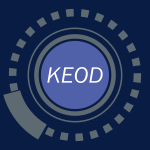 KEOD-2012-ReinosoOML #wiki
KEOD-2012-ReinosoOML #wiki- Most Popular Contents Requested by Users in Different Wikipedia Editions (AJR, JOV, RMM, CL), pp. 415–418.
 Onward-2012-Heinlein #composition #named #programming language #static typing
Onward-2012-Heinlein #composition #named #programming language #static typing- MOST-flexiPL: modular, statically typed, flexibly extensible programming language (CH), pp. 159–178.
 PODS-2011-CohenK #using
PODS-2011-CohenK #using- Get the most out of your sample: optimal unbiased estimators using partial information (EC, HK), pp. 13–24.
 CSEET-2011-Meawad #agile #enterprise #re-engineering
CSEET-2011-Meawad #agile #enterprise #re-engineering- The virtual agile enterprise: Making the most of a software engineering course (FM), pp. 324–332.
 CSEET-2011-Roach #experience #re-engineering #student
CSEET-2011-Roach #experience #re-engineering #student- Retrospectives in a software engineering project course: Getting students to get the most from a project experience (SR), pp. 467–471.
 ITiCSE-2011-AmbrosioM #education #matter #what
ITiCSE-2011-AmbrosioM #education #matter #what- What matters most when teaching CS1 (APA, SWM), p. 385.
 PLDI-2011-Chlipala #logic #low level #source code #verification
PLDI-2011-Chlipala #logic #low level #source code #verification- Mostly-automated verification of low-level programs in computational separation logic (AC), pp. 234–245.
 CIKM-2011-HuangWQZCH
CIKM-2011-HuangWQZCH- Top-k most influential locations selection (JH, ZW, JQ, RZ, JC, ZH), pp. 2377–2380.
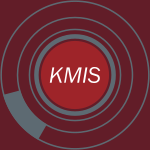 KMIS-2011-MendesR11a #development #ontology #semantics
KMIS-2011-MendesR11a #development #ontology #semantics- The BRIDG Model as the Most Authoritative Resource in Shared Semantics for Ontologies Development in Healthcare Practice (DM, IPR), pp. 379–383.
 DATE-2010-BraunBLR #interface #specification #verification
DATE-2010-BraunBLR #interface #specification #verification- Simulation-based verification of the MOST NetInterface specification revision 3.0 (AB, OB, DL, WR), pp. 538–543.
 VLDB-2010-VlachouDNK #identification #query
VLDB-2010-VlachouDNK #identification #query- Identifying the Most Influential Data Objects with Reverse Top-k Queries (AV, CD, KN, YK), pp. 364–372.
 PASTE-2010-MizushimaMY #constant #parsing
PASTE-2010-MizushimaMY #constant #parsing- Packrat parsers can handle practical grammars in mostly constant space (KM, AM, YY), pp. 29–36.
 STOC-2010-MicciancioV #algorithm #exponential #problem
STOC-2010-MicciancioV #algorithm #exponential #problem- A deterministic single exponential time algorithm for most lattice problems based on voronoi cell computations (DM, PV), pp. 351–358.
 OOPSLA-2010-ChibaIZ #compilation #composition
OOPSLA-2010-ChibaIZ #compilation #composition- Mostly modular compilation of crosscutting concerns by contextual predicate dispatch (SC, AI, SZ), pp. 539–554.
 SAC-2010-Rooney #scheduling
SAC-2010-Rooney #scheduling- Scheduling intense applications most “surprising” first (SR), pp. 2077–2084.
 ICST-2010-WeyukerBO #debugging #question #what
ICST-2010-WeyukerBO #debugging #question #what- We’re Finding Most of the Bugs, but What are We Missing? (EJW, RMB, TJO), pp. 313–322.
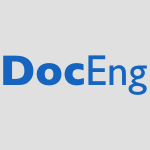 DocEng-2009-ZubiagaMF #classification #social #web
DocEng-2009-ZubiagaMF #classification #social #web- Getting the most out of social annotations for web page classification (AZ, RM, VF), pp. 74–83.
 ICDAR-2009-ParakhinH #probability #ranking
ICDAR-2009-ParakhinH #probability #ranking- Finding the Most Probable Ranking of Objects with Probabilistic Pairwise Preferences (MP, PMH), pp. 616–620.
 VLDB-2009-CongJW #performance #retrieval #web
VLDB-2009-CongJW #performance #retrieval #web- Efficient Retrieval of the Top-k Most Relevant Spatial Web Objects (GC, CSJ, DW), pp. 337–348.
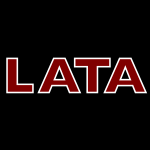 LATA-2009-MitranaT #network #on the
LATA-2009-MitranaT #network #on the- On Accepting Networks of Evolutionary Processors with at Most Two Types of Nodes (VM, BT), pp. 588–600.
 KDD-2009-DeodharG #mining #predict
KDD-2009-DeodharG #mining #predict- Mining for the most certain predictions from dyadic data (MD, JG), pp. 249–258.
 SEKE-2009-BarbosaB #elicitation #process #requirements #towards
SEKE-2009-BarbosaB #elicitation #process #requirements #towards- Towards the Selection of the Most Suitable Elicitation Technique Through a Defined Requirements Elicitation Process (MWB, GARB), pp. 33–36.
 SAC-2009-OyamaKI #haskell #monitoring #named #virtual machine
SAC-2009-OyamaKI #haskell #monitoring #named #virtual machine- Kenro: a virtual machine monitor mostly described in Haskell (YO, YK, HI), pp. 1940–1941.
 ICLP-2009-ChenJL #logic programming #source code
ICLP-2009-ChenJL #logic programming #source code- Computing Loops with at Most One External Support Rule for Disjunctive Logic Programs (XC, JJ, FL), pp. 130–144.
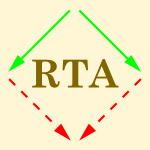 RTA-2009-Simonsen #term rewriting
RTA-2009-Simonsen #term rewriting- The -Completeness of Most of the Properties of Rewriting Systems You Care About (and Productivity) (JGS), pp. 335–349.
 VMCAI-2009-BentonF #behaviour #java #source code
VMCAI-2009-BentonF #behaviour #java #source code- Mostly-Functional Behavior in Java Programs (WCB, CNF), pp. 29–43.
 WCRE-2008-Holt #architecture
WCRE-2008-Holt #architecture- WCRE 1998 Most Influential Paper: Grokking Software Architecture (RCH), pp. 5–14.
 ICPR-2008-IbrahimG #online #using #verification
ICPR-2008-IbrahimG #online #using #verification- On-line signature verification by using most discriminating points (MTI, LG), pp. 1–4.
 KR-2008-ChenJL
KR-2008-ChenJL- Computing Loops with at Most One External Support Rule (XC, JJ, FL), pp. 401–410.
 SIGIR-2008-ValletZ #approach #query #semantics
SIGIR-2008-ValletZ #approach #query #semantics- Inferring the most important types of a query: a semantic approach (DV, HZ), pp. 857–858.
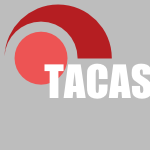 TACAS-2007-KatoenKZJ #bisimulation #model checking #probability
TACAS-2007-KatoenKZJ #bisimulation #model checking #probability- Bisimulation Minimisation Mostly Speeds Up Probabilistic Model Checking (JPK, TK, ISZ, DNJ), pp. 87–101.
 HCI-AS-2007-Furukawa #challenge #effectiveness #fault #injection #question #what
HCI-AS-2007-Furukawa #challenge #effectiveness #fault #injection #question #what- Challenge for Preventing Medication Errors -Learn from Errors- : What Is the Most Effective Label Display to Prevent Medication Error for Injectable Drug ? (HF), pp. 437–442.
 ICML-2007-KerstingPPB #process
ICML-2007-KerstingPPB #process- Most likely heteroscedastic Gaussian process regression (KK, CP, PP, WB), pp. 393–400.
 CC-2007-BatchelderH #java #obfuscation
CC-2007-BatchelderH #java #obfuscation- Obfuscating Java: The Most Pain for the Least Gain (MB, LJH), pp. 96–110.
 ICPR-v1-2006-GaoWFZ #recognition #using
ICPR-v1-2006-GaoWFZ #recognition #using- Face Recognition Using Most Discriminative Local and Global Features (YG, YW, XF, XZ), pp. 351–354.
 ICPR-v4-2006-CantoniLL06a #algorithm
ICPR-v4-2006-CantoniLL06a #algorithm- Most minutiae-based matching algorithms confront (VC, LL, PL), pp. 378–385.
 ISMM-2006-Hosking #garbage collection #multi
ISMM-2006-Hosking #garbage collection #multi- Portable, mostly-concurrent, mostly-copying garbage collection for multi-processors (ALH), pp. 40–51.
 VLDB-2005-XiaZKD #on the
VLDB-2005-XiaZKD #on the- On Computing Top-t Most Influential Spatial Sites (TX, DZ, EK, YD), pp. 946–957.
 TACAS-2004-YorshRS #analysis
TACAS-2004-YorshRS #analysis- Symbolically Computing Most-Precise Abstract Operations for Shape Analysis (GY, TWR, SS), pp. 530–545.
 CHI-2004-GergleMKF #chat #matter #persistent
CHI-2004-GergleMKF #chat #matter #persistent- Persistence matters: making the most of chat in tightly-coupled work (DG, DRM, REK, SRF), pp. 431–438.
 ISMM-2004-OssiaBS #concurrent #garbage collection
ISMM-2004-OssiaBS #concurrent #garbage collection- Mostly concurrent compaction for mark-sweep GC (YO, OBY, MS), pp. 25–36.
 PODS-2003-CormodeM #what
PODS-2003-CormodeM #what- What’s hot and what’s not: tracking most frequent items dynamically (GC, SM), pp. 296–306.
 ICEIS-v1-2003-WallS
ICEIS-v1-2003-WallS- The Kinds of IT Services Most Appropriate for a Particular Sourcing Strategy (PW, LS), pp. 590–593.
 CIKM-2003-BukauskasMO #incremental #named
CIKM-2003-BukauskasMO #incremental #named- iTopN: incremental extraction of the N most visible objects (LB, LM, EO, MHB), pp. 461–468.
 OOPSLA-2003-BarabashOP #concurrent #garbage collection #revisited
OOPSLA-2003-BarabashOP #concurrent #garbage collection #revisited- Mostly concurrent garbage collection revisited (KB, YO, EP), pp. 255–268.
 ICEIS-2002-EstevesP #enterprise #framework #implementation
ICEIS-2002-EstevesP #enterprise #framework #implementation- A Framework to Analyse Most Critical Work Packages in ERP Implementation Projects (JE, JAP), pp. 89–98.
 ICML-2002-KleinKM #clustering #constraints #information management
ICML-2002-KleinKM #clustering #constraints #information management- From Instance-level Constraints to Space-Level Constraints: Making the Most of Prior Knowledge in Data Clustering (DK, SDK, CDM), pp. 307–314.
 OOPSLA-2002-KawachiyaKO #java
OOPSLA-2002-KawachiyaKO #java- Lock reservation: Java locks can mostly do without atomic operations (KK, AK, TO), pp. 130–141.
 ISMM-2002-DiceG
ISMM-2002-DiceG- Mostly lock-free malloc (DD, AG), pp. 269–280.
 DATE-2001-HettichT #architecture #challenge
DATE-2001-HettichT #architecture #challenge- Vehicle electric/electronic architecture — one of the most important challenges for OEM’s (GH, TT), pp. 112–113.
 HT-2001-Hall
HT-2001-Hall- Most Linkless (WH), pp. 3–4.
 SEKE-2001-Davis #re-engineering #requirements
SEKE-2001-Davis #re-engineering #requirements- Requirements Triage: The Most Important Part of Software Engineering… and the Most Ignored (AD), p. 275.
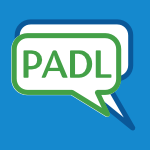 PADL-2001-TyagiT #algorithm #interface #prolog
PADL-2001-TyagiT #algorithm #interface #prolog- A Most Specific Method Finding Algorithm for Reflection Based Dynamic Prolog-to-Java Interfaces (ST, PT), pp. 322–336.
 SAC-2001-ZhouCH #correlation #identification #optimisation #problem #set #using
SAC-2001-ZhouCH #correlation #identification #optimisation #problem #set #using- Identifying the most significant pairwise correlations of residues in different positions of helices: the subset selection problem using least squares optimization (XZ, GC, MTH), pp. 51–55.
 SAT-2001-AmirM #composition #problem #satisfiability #using
SAT-2001-AmirM #composition #problem #satisfiability #using- Solving Satisfiability using Decomposition and the Most Constrained Subproblem (Preliminary Report) (EA, SM), pp. 329–343.
 ICEIS-2000-Ritchie
ICEIS-2000-Ritchie- Making the Most of Your Knowledge (IR), p. XXVI.
 ISMM-2000-PrintezisD #garbage collection
ISMM-2000-PrintezisD #garbage collection- A Generational Mostly-Concurrent Garbage Collector (TP, DD), pp. 143–154.
 KDD-1999-BayardoA #mining
KDD-1999-BayardoA #mining- Mining the Most Interesting Rules (RJBJ, RA), pp. 145–154.
 OOPSLA-1999-HoskingC #orthogonal #persistent
OOPSLA-1999-HoskingC #orthogonal #persistent- Mostly-copying Reachability-based Orthogonal Persistence (ALH, JC), pp. 382–398.
 TOOLS-USA-1999-Pour #component #development #enterprise #java #quality
TOOLS-USA-1999-Pour #component #development #enterprise #java #quality- Quality Component Development: Making the Most of JavaBeans and Enterprise JavaBeans Features (GP), pp. 427–437.
 POPL-1999-Myers #data flow #named
POPL-1999-Myers #data flow #named- JFlow: Practical Mostly-Static Information Flow Control (ACM), pp. 228–241.
 ISMM-1998-SmithM
ISMM-1998-SmithM- Comparing Mostly-Copying and Mark-Sweep Conservative Collection (FS, JGM), pp. 68–78.
 ICSE-1997-Osterweil #process
ICSE-1997-Osterweil #process- Software Processes Are Software Too, Revisited: An Invited Talk on the Most Influential Paper of ICSE 9 (LJO), pp. 540–548.
 SIGIR-1995-Iivonen #consistency #difference
SIGIR-1995-Iivonen #consistency #difference- Searchers and Searchers: Differences between the Most and Least Consistent Searchers (MI), pp. 149–157.
 ECOOP-1995-BertinoG #multi
ECOOP-1995-BertinoG #multi- Objects with Multiple Most Specific Classes (EB, GG), pp. 102–126.
 SIGMOD-1994-Fernandez
SIGMOD-1994-Fernandez- Red Brick Warehouse: A Read-Mostly RDBMS for Open SMP Platforms (PMF), p. 492.
 ICML-1994-KoppelSF
ICML-1994-KoppelSF- Getting the Most from Flawed Theories (MK, AMS, RF), pp. 139–147.
 PLDI-1991-BoehmDS #garbage collection #parallel
PLDI-1991-BoehmDS #garbage collection #parallel- Mostly Parallel Garbage Collection (HJB, AJD, SS), pp. 157–164.
 CAV-1991-SchneiderKK #automation #hardware #proving
CAV-1991-SchneiderKK #automation #hardware #proving- Automating Most Parts of Hardware Proofs in HOL (KS, RK, TK), pp. 365–375.
 DAC-1989-YenDG #algorithm #analysis #performance
DAC-1989-YenDG #algorithm #analysis #performance- Efficient Algorithms for Extracting the K most Critical Paths in Timing Analysis (SHY, DHCD, SG), pp. 649–654.
 CHI-1989-BlackBMC #effectiveness #learning #online #question #what
CHI-1989-BlackBMC #effectiveness #learning #online #question #what- On-line tutorials: What kind of inference leads to the most effective learning? (JBB, JSB, MM, JMC), pp. 81–83.
 SOSP-1989-EdwardsM #file system
SOSP-1989-EdwardsM #file system- Exploiting Read-Mostly Workloads in The FileNet File System (DAE, MSM), pp. 58–70.
 JICSCP-1988-MarriottNL88 #logic programming #source code
JICSCP-1988-MarriottNL88 #logic programming #source code- Most Specific Logic Programs (KM, LN, JLL), pp. 909–923.
 LICS-1988-MullerSS #automaton #decidability #exponential #logic #why
LICS-1988-MullerSS #automaton #decidability #exponential #logic #why- Weak Alternating Automata Give a Simple Explanation of Why Most Temporal and Dynamic Logics are Decidable in Exponential Time (DEM, AS, PES), pp. 422–427.
 LFP-1986-Knight #architecture #functional
LFP-1986-Knight #architecture #functional- An Architecture for Mostly Functional Languages (TFK), pp. 105–112.
 DAC-1982-MalingMH #on the
DAC-1982-MalingMH #on the- On finding most optimal rectangular package plans (KM, SHM, WRH), pp. 663–670.
 ICALP-1980-LangmaackO #hoare #programming language
ICALP-1980-LangmaackO #hoare #programming language- Present-Day Hoare-Like Systems for Programming Languages with Procedures: Power, Limits and most Likely Expressions (HL, ERO), pp. 363–373.
 ICALP-1974-Kandzia #algol #on the #source code
ICALP-1974-Kandzia #algol #on the #source code- On the Most Recent Property of Algol-Like Programs (PK), pp. 97–111.
 RecSys-2015-MouliC #dependence #feedback #modelling
RecSys-2015-MouliC #dependence #feedback #modelling SEKE-2015-MatturroFR #agile #bibliography
SEKE-2015-MatturroFR #agile #bibliography ASE-2014-Schneider14a #fault #modelling #runtime
ASE-2014-Schneider14a #fault #modelling #runtime DATE-2014-BartoliniCCTB #energy
DATE-2014-BartoliniCCTB #energy CSCW-2014-MarkGKJ #enterprise #social #social media
CSCW-2014-MarkGKJ #enterprise #social #social media HCI-AS-2014-Hussain #data mining #mining
HCI-AS-2014-Hussain #data mining #mining ICML-c1-2014-YogatamaS #multi #word
ICML-c1-2014-YogatamaS #multi #word OSDI-2014-YuanLZRZZJS #analysis #data-driven #distributed #testing
OSDI-2014-YuanLZRZZJS #analysis #data-driven #distributed #testing ICDAR-2013-YadavCK #using
ICDAR-2013-YadavCK #using SIGMOD-2013-LuoT0N
SIGMOD-2013-LuoT0N ITiCSE-2013-BundeDS #assessment #process
ITiCSE-2013-BundeDS #assessment #process CIAA-J-2012-Brzozowski13 #regular expression
CIAA-J-2012-Brzozowski13 #regular expression ICML-c3-2013-PeharzTP #generative #network
ICML-c3-2013-PeharzTP #generative #network Onward-2013-OhshimaLFK #declarative #framework #interactive #user interface
Onward-2013-OhshimaLFK #declarative #framework #interactive #user interface RE-2013-GlinzW #requirements
RE-2013-GlinzW #requirements SIGMOD-2012-ZukowskiB #challenge #research
SIGMOD-2012-ZukowskiB #challenge #research CIAA-2012-Brzozowski #regular expression
CIAA-2012-Brzozowski #regular expression CIKM-2012-ZhanZZL #nondeterminism
CIKM-2012-ZhanZZL #nondeterminism ICML-2012-QuadriantoCL #clique #graph #persistent #set
ICML-2012-QuadriantoCL #clique #graph #persistent #set KEOD-2012-ReinosoOML #wiki
KEOD-2012-ReinosoOML #wiki Onward-2012-Heinlein #composition #named #programming language #static typing
Onward-2012-Heinlein #composition #named #programming language #static typing PODS-2011-CohenK #using
PODS-2011-CohenK #using CSEET-2011-Meawad #agile #enterprise #re-engineering
CSEET-2011-Meawad #agile #enterprise #re-engineering CSEET-2011-Roach #experience #re-engineering #student
CSEET-2011-Roach #experience #re-engineering #student ITiCSE-2011-AmbrosioM #education #matter #what
ITiCSE-2011-AmbrosioM #education #matter #what PLDI-2011-Chlipala #logic #low level #source code #verification
PLDI-2011-Chlipala #logic #low level #source code #verification CIKM-2011-HuangWQZCH
CIKM-2011-HuangWQZCH KMIS-2011-MendesR11a #development #ontology #semantics
KMIS-2011-MendesR11a #development #ontology #semantics DATE-2010-BraunBLR #interface #specification #verification
DATE-2010-BraunBLR #interface #specification #verification VLDB-2010-VlachouDNK #identification #query
VLDB-2010-VlachouDNK #identification #query PASTE-2010-MizushimaMY #constant #parsing
PASTE-2010-MizushimaMY #constant #parsing STOC-2010-MicciancioV #algorithm #exponential #problem
STOC-2010-MicciancioV #algorithm #exponential #problem OOPSLA-2010-ChibaIZ #compilation #composition
OOPSLA-2010-ChibaIZ #compilation #composition SAC-2010-Rooney #scheduling
SAC-2010-Rooney #scheduling ICST-2010-WeyukerBO #debugging #question #what
ICST-2010-WeyukerBO #debugging #question #what DocEng-2009-ZubiagaMF #classification #social #web
DocEng-2009-ZubiagaMF #classification #social #web ICDAR-2009-ParakhinH #probability #ranking
ICDAR-2009-ParakhinH #probability #ranking VLDB-2009-CongJW #performance #retrieval #web
VLDB-2009-CongJW #performance #retrieval #web LATA-2009-MitranaT #network #on the
LATA-2009-MitranaT #network #on the KDD-2009-DeodharG #mining #predict
KDD-2009-DeodharG #mining #predict SEKE-2009-BarbosaB #elicitation #process #requirements #towards
SEKE-2009-BarbosaB #elicitation #process #requirements #towards SAC-2009-OyamaKI #haskell #monitoring #named #virtual machine
SAC-2009-OyamaKI #haskell #monitoring #named #virtual machine ICLP-2009-ChenJL #logic programming #source code
ICLP-2009-ChenJL #logic programming #source code RTA-2009-Simonsen #term rewriting
RTA-2009-Simonsen #term rewriting VMCAI-2009-BentonF #behaviour #java #source code
VMCAI-2009-BentonF #behaviour #java #source code WCRE-2008-Holt #architecture
WCRE-2008-Holt #architecture ICPR-2008-IbrahimG #online #using #verification
ICPR-2008-IbrahimG #online #using #verification KR-2008-ChenJL
KR-2008-ChenJL SIGIR-2008-ValletZ #approach #query #semantics
SIGIR-2008-ValletZ #approach #query #semantics TACAS-2007-KatoenKZJ #bisimulation #model checking #probability
TACAS-2007-KatoenKZJ #bisimulation #model checking #probability HCI-AS-2007-Furukawa #challenge #effectiveness #fault #injection #question #what
HCI-AS-2007-Furukawa #challenge #effectiveness #fault #injection #question #what ICML-2007-KerstingPPB #process
ICML-2007-KerstingPPB #process CC-2007-BatchelderH #java #obfuscation
CC-2007-BatchelderH #java #obfuscation ICPR-v1-2006-GaoWFZ #recognition #using
ICPR-v1-2006-GaoWFZ #recognition #using ICPR-v4-2006-CantoniLL06a #algorithm
ICPR-v4-2006-CantoniLL06a #algorithm ISMM-2006-Hosking #garbage collection #multi
ISMM-2006-Hosking #garbage collection #multi VLDB-2005-XiaZKD #on the
VLDB-2005-XiaZKD #on the TACAS-2004-YorshRS #analysis
TACAS-2004-YorshRS #analysis CHI-2004-GergleMKF #chat #matter #persistent
CHI-2004-GergleMKF #chat #matter #persistent ISMM-2004-OssiaBS #concurrent #garbage collection
ISMM-2004-OssiaBS #concurrent #garbage collection PODS-2003-CormodeM #what
PODS-2003-CormodeM #what ICEIS-v1-2003-WallS
ICEIS-v1-2003-WallS CIKM-2003-BukauskasMO #incremental #named
CIKM-2003-BukauskasMO #incremental #named OOPSLA-2003-BarabashOP #concurrent #garbage collection #revisited
OOPSLA-2003-BarabashOP #concurrent #garbage collection #revisited ICEIS-2002-EstevesP #enterprise #framework #implementation
ICEIS-2002-EstevesP #enterprise #framework #implementation ICML-2002-KleinKM #clustering #constraints #information management
ICML-2002-KleinKM #clustering #constraints #information management OOPSLA-2002-KawachiyaKO #java
OOPSLA-2002-KawachiyaKO #java ISMM-2002-DiceG
ISMM-2002-DiceG DATE-2001-HettichT #architecture #challenge
DATE-2001-HettichT #architecture #challenge HT-2001-Hall
HT-2001-Hall SEKE-2001-Davis #re-engineering #requirements
SEKE-2001-Davis #re-engineering #requirements PADL-2001-TyagiT #algorithm #interface #prolog
PADL-2001-TyagiT #algorithm #interface #prolog SAC-2001-ZhouCH #correlation #identification #optimisation #problem #set #using
SAC-2001-ZhouCH #correlation #identification #optimisation #problem #set #using SAT-2001-AmirM #composition #problem #satisfiability #using
SAT-2001-AmirM #composition #problem #satisfiability #using ICEIS-2000-Ritchie
ICEIS-2000-Ritchie ISMM-2000-PrintezisD #garbage collection
ISMM-2000-PrintezisD #garbage collection KDD-1999-BayardoA #mining
KDD-1999-BayardoA #mining OOPSLA-1999-HoskingC #orthogonal #persistent
OOPSLA-1999-HoskingC #orthogonal #persistent TOOLS-USA-1999-Pour #component #development #enterprise #java #quality
TOOLS-USA-1999-Pour #component #development #enterprise #java #quality POPL-1999-Myers #data flow #named
POPL-1999-Myers #data flow #named ISMM-1998-SmithM
ISMM-1998-SmithM ICSE-1997-Osterweil #process
ICSE-1997-Osterweil #process SIGIR-1995-Iivonen #consistency #difference
SIGIR-1995-Iivonen #consistency #difference ECOOP-1995-BertinoG #multi
ECOOP-1995-BertinoG #multi SIGMOD-1994-Fernandez
SIGMOD-1994-Fernandez ICML-1994-KoppelSF
ICML-1994-KoppelSF PLDI-1991-BoehmDS #garbage collection #parallel
PLDI-1991-BoehmDS #garbage collection #parallel CAV-1991-SchneiderKK #automation #hardware #proving
CAV-1991-SchneiderKK #automation #hardware #proving DAC-1989-YenDG #algorithm #analysis #performance
DAC-1989-YenDG #algorithm #analysis #performance CHI-1989-BlackBMC #effectiveness #learning #online #question #what
CHI-1989-BlackBMC #effectiveness #learning #online #question #what SOSP-1989-EdwardsM #file system
SOSP-1989-EdwardsM #file system JICSCP-1988-MarriottNL88 #logic programming #source code
JICSCP-1988-MarriottNL88 #logic programming #source code LICS-1988-MullerSS #automaton #decidability #exponential #logic #why
LICS-1988-MullerSS #automaton #decidability #exponential #logic #why LFP-1986-Knight #architecture #functional
LFP-1986-Knight #architecture #functional DAC-1982-MalingMH #on the
DAC-1982-MalingMH #on the ICALP-1980-LangmaackO #hoare #programming language
ICALP-1980-LangmaackO #hoare #programming language ICALP-1974-Kandzia #algol #on the #source code
ICALP-1974-Kandzia #algol #on the #source code









